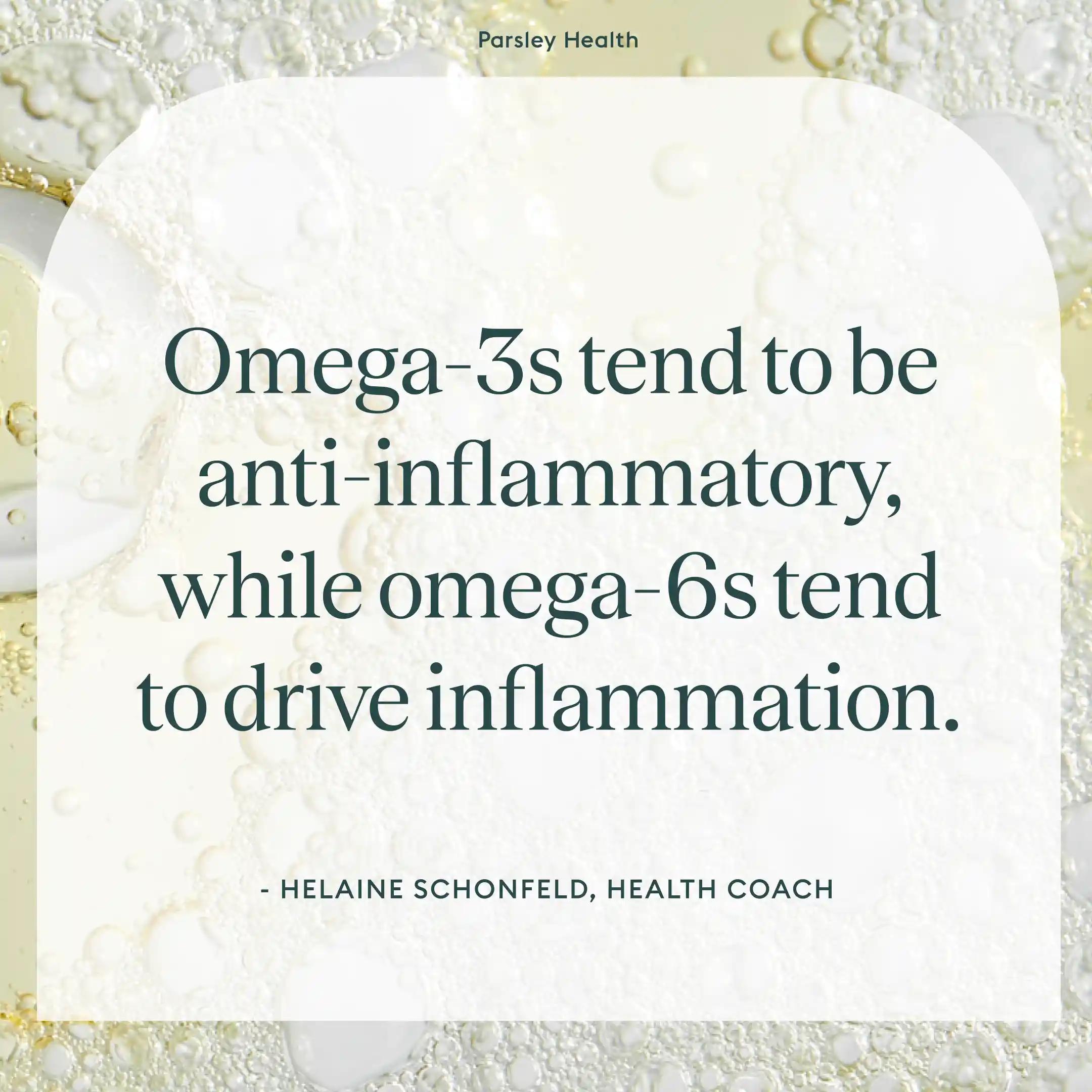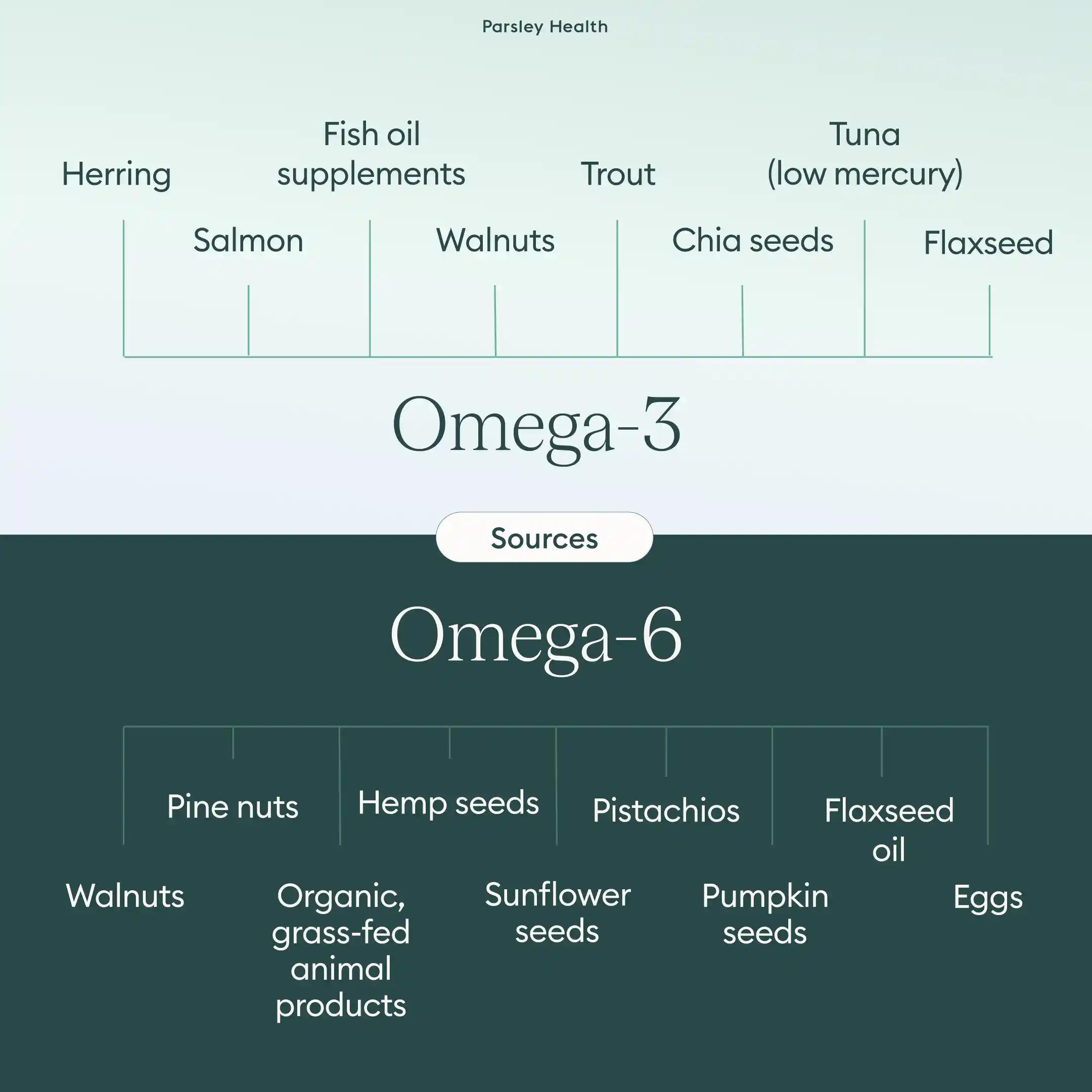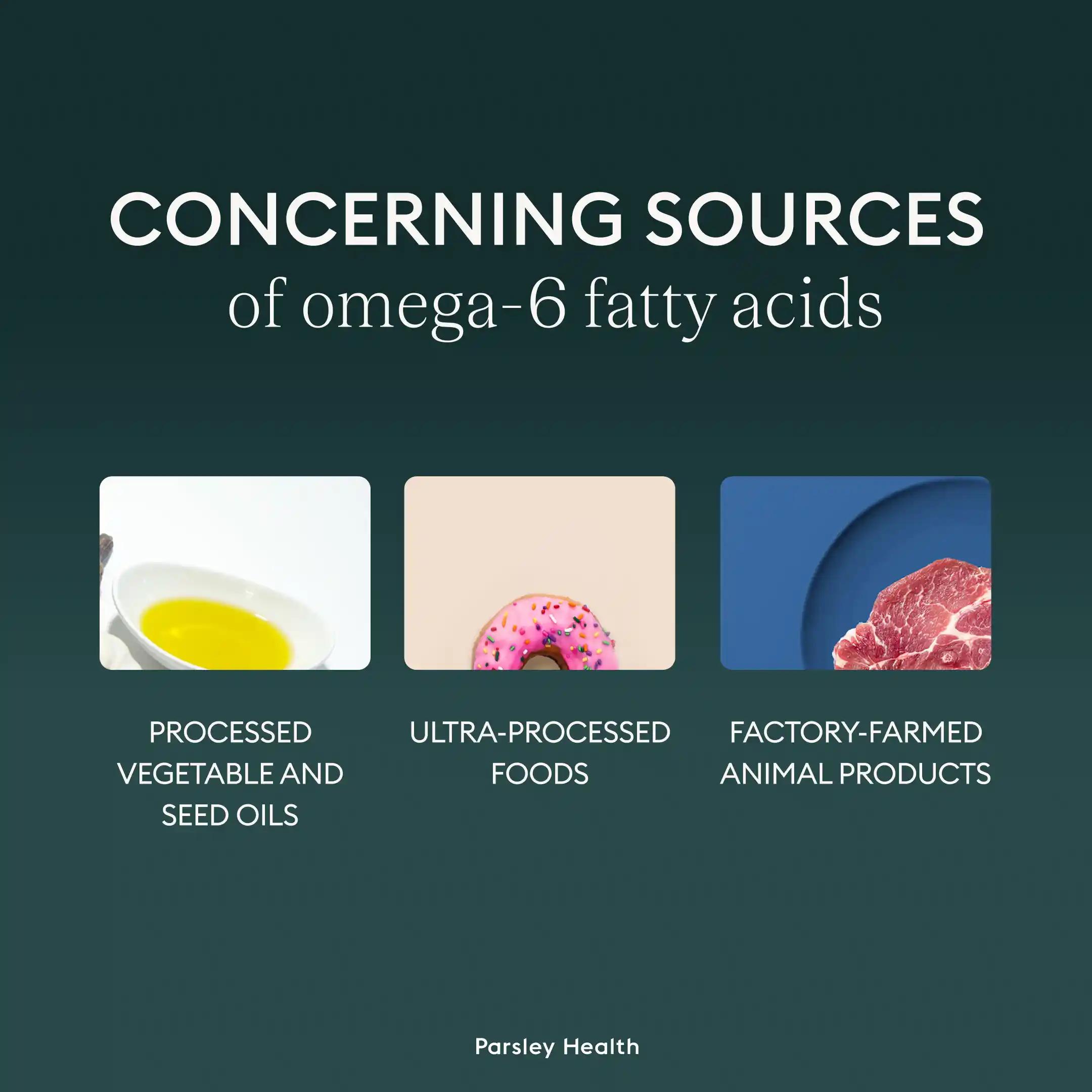This article contains additional reporting by Jennifer Chesak.
Omega-3 vs omega-6 fatty acids: Here we provide a head-to-head comparison since these essential nutrients are not created equal. In a nutshell, omega-3s tend to be anti-inflammatory, while omega-6s tend to drive inflammation. Yet we tend to eat more omega-6s in our diet.
Omega-3 fatty acids have been researched for their cardiovascular and neurological benefits while omega-6 fatty acids have been linked to diseases, such as heart disease, autoimmune disorders, and inflammatory bowel disease (IBD).

Our bodies can’t make these polyunsaturated fatty acids, so we must get them from other sources, either through food or supplementation. But if omega-6 fatty acids are essential nutrients, can they be so detrimental to our health?
Well, as with many things in life, too much of something can sometimes be problematic. This is especially true when it comes to omega-6 fatty acids. We need balance.
By simply being aware of what foods in your diet contain omega-3s vs omega-6s, you can maintain a healthy ratio of the two.
What are omega-3 fatty acids?
Omega-3 fatty acids dilate the blood vessels and combat inflammation. A diet rich in omega-3s has been associated with a lower risk of diseases, such as atherosclerosis (hardening of the arteries), obesity, and Type 2 diabetes.
The three most important omega-3s are alpha-linolenic acid (ALA), eicosapentaenoic acid (EPA), docosahexaenoic acid (DHA).
Sources of omega-3 fatty acids
- salmon
- tuna (work with your doctor for sources that ensure high omega 3s and lower mercury)
- herring
- trout
- walnuts
- flaxseed
- chia seeds
- fish oil supplements
What are omega-6 fatty acids?
Omega-6 fatty acids are also essential. Linoleic acid (LA) is a common one. But rather than dilate blood vessels as omega-3 fatty acids do, omega-6s constrict them. This constriction can increase blood pressure.

Our body needs omega-6s to function, but only to a certain extent. When consumed in excess, omega-6 fatty acids can advance the progression of atherosclerosis.
Healthy sources of omega-6 fatty acids
- pumpkin seeds
- sunflower seeds
- hemp seeds
- flaxseed oil
- pine nuts
- pistachios
- walnuts
- eggs
- organic, grass-fed animal products
Concerning sources of omega-6 fatty acids

- processed vegetable and seed oils
- ultra-processed foods
- factory-farmed animal products
Why your ratio of omega-6 to omega-3 fatty acids matters
Modern agriculture, factory farming, and the food industry as a whole have led to a decrease in omega-3s and an increase in omega-6s in our diet. Foods that would otherwise have a natural balance of these fatty acids have been altered by changes in animal feeds used for chicken, egg, and fish production. The increase in ultra-processed foods in the Western diet has also contributed to this imbalance.
The diets of our ancestors had a 1:1 ratio of omega- 6 to omega-3 essential fatty acids. Today we’re eating closer to a 20:1 ratio. A lower ratio is linked to improved health outcomes. Research has shown that a ratio ranging from 3-4:1 is linked with a reduction in rectal cell proliferation in patients with colorectal cancer and lowered inflammation in patients with rheumatoid arthritis.
This lower target ratio was also linked to a 70 percent decrease in total mortality in those with cardiovascular disease. And in asthma patients, a ratio of 5:1 has proven beneficial.
While scientists are still studying the exact ratio to optimize overall health, Parsley Health doctors and providers recommend a 1-3:1 ratio and help members tailor their diet accordingly.
Tips for adding foods high in omega-3 fatty acids to your diet
Buy organic free-range eggs, milk, and meat.
Organic, free-range, grass-fed animal products contain higher levels of omega-3 fatty acids than conventionally farmed products. For example, a meta-analysis looking at fatty acids in organic versus conventional milk found a 58 percent higher concentration of omega-3 fatty acids in organic products.
Pay attention to the source of your fish.
Aim for fresh, wild-caught fish. Farmed fish contain a lower value of omega-3 fatty acids. For options, try Sea to Table.
Research suggests that getting your omega-3s from food is your best bet if you do not have existing cardiovascular disease. This is because some studies indicate that regular fish oil supplementation might be a risk factor for atrial fibrillation and stroke among the general population.
If you do have cardiovascular disease, talk to your doctor as to whether to take fish oil as a supplement. Some research indicates that supplementation may help reduce the risk of progressing to major cardiac events.
Skip the processed vegetable and seed oils that are high in omega-6 (canola, safflower, sunflower, soybean, cottonseed). Use olive and avocado oil instead.





